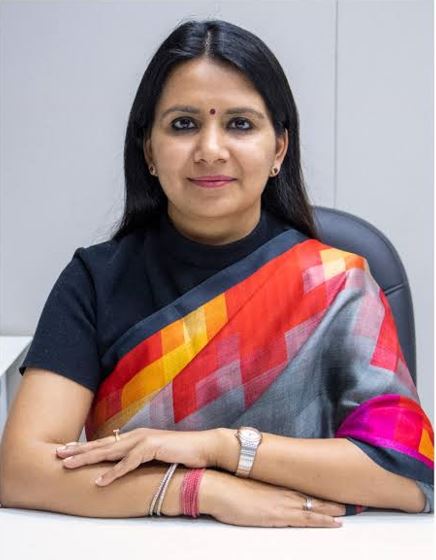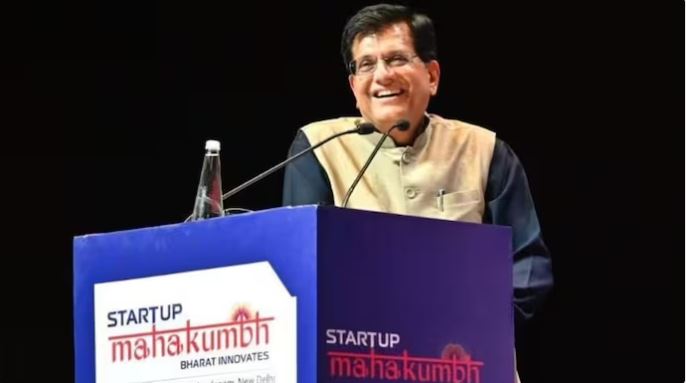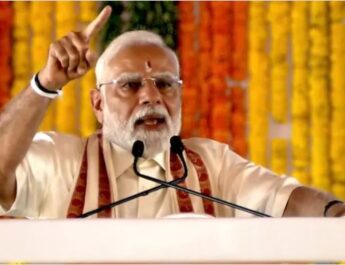New Delhi: Startup Mahakumbh 2025, held at Bharat Mandapam, New Delhi, served as a platform to showcase India’s ambition to become a global innovation hub by 2047. Union Minister of Commerce and Industry Piyush Goyal’s speech at the Startup Mahakumbh gave rise to a heated debate within business circles and the startup ecosystem. Investor, entrepreneur and strategist, CA Tripti Singhal Somani said that in this Maha Kumbh, we talked not only about funding but also about revenue. Organising committee has not stopped here; we will also look at mentorship, industry linkages and market linkages for the delegates. Till now such initiatives for start-ups have happened only on a platform like GITEX, but now for the first time in our own country, there is an opportunity to bring start-ups, the public sector, enterprise advisors and investor ministries under one roof.

In his keynote address, Goyal raised a fundamental question: should India be satisfied with creating low-wage gig jobs, or should it aspire to lead in transformational areas like AI, semiconductors, electric vehicles (EVs) and robotics? Citing the example of China, he said that while startups are making significant progress in the deep-tech domain, Indian entrepreneurs are not able to think beyond food delivery and instant commerce. The union minister asked a pointed question: “Do we just want to run shops?”
CA Tripti Singhal Somani has her view on it. She said that his question, however, was not a dismissal of consumer internet startups but a call to think bigger and aim for global influence. Reactions to the minister’s comments were immediate. Startup founders such as Zepto’s Aadit Palicha and BharatPe’s former head Ashneer Grover defended the consumer internet model, arguing that it promotes jobs, foreign investment and infrastructure development, which lays the foundation for future innovation. Entrepreneurs including Mohandas Pai and Anupam Mittal pointed fingers at regulatory hurdles such as angel tax and an inadequate funding ecosystem and said the government has not done enough to support deep-tech startups.
According to Tripti, Goyal’s emphasis on deep-tech innovation will have multiple benefits for India. By prioritising deep tech, India can create high-quality jobs with long-term sustainability. It can attract domestic and foreign investment and establish itself as a global leader in innovation and technology-driven growth. It can also reduce dependence on foreign capital and boost domestic entrepreneurship. Nations that lead in deep-tech innovation set the rules of the future economy. If India wants to become a $10 trillion economy, it must compete in high-stakes tech sectors rather than being limited to low-margin, highly competitive consumer markets.
She elaborate this as Piyush Goyal’s words are not mere rhetoric – they are backed by concrete policy actions. His leadership has provided the necessary spark – a call to prioritise deep-tech, promote high-impact entrepreneurship and create an ecosystem where India’s brightest minds can solve the world’s toughest problems. The Modi government has already taken several steps to support startups, including tax incentives, financing schemes and infrastructure development. However, the debate he has sparked is not just about startups; it is about India’s economic destiny.
The deep tech innovation that Goyal emphasises has the potential to turn India’s startup ecosystem into a global power. By shifting focus from convenience-driven businesses to high-impact areas, India can attract high-value investments, create stable jobs and establish itself as a leader in the global innovation landscape. Goyal’s vision for India’s startup ecosystem is not just about immediate gains but about building a future-ready economy that can compete on the world stage.
Despite limitations and many obstacles, India’s startup ecosystem is transforming into a viable launch pad for the innovative ventures of the future. It has evolved from a nascent industry to one of the world’s most vibrant entrepreneurial landscapes. As India moves forward, it must balance the success of consumer internet startups with the need to foster deep tech innovation. Startup Mahakumbh 2025 has set the stage for this transformation, and Goyal’s visionary leadership is guiding it. The time to act is now, and the choices made today will shape India’s entrepreneurial landscape for decades to come.




